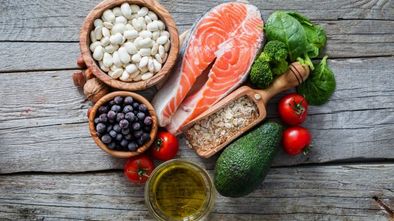 If you’ve ever requested a vegetarian meal on an airplane, then you know that the airline gives you an entirely different meal than everyone else. While you're eating bean paste and sprouts without a cookie, you start salivating over the sandwich, grapes, and chips everyone else is eating. During my 15 years of vegetarianism, there is no question I get asked more frequently than, “What should I feed a vegetarian guest?” To answer the question, prepare whatever dish you normally would, with meat on the side. Vegetarians are like everyone else, but we just don’t eat meat. I’ve been to many dinner parties where I was forced to choke down bland, poorly-cooked tofu while everyone else ate gourmet. Follow these simple guidelines to please any vegetarian guest. You’ll be surprised how easy it is. Common mistakes In an effort to please vegetarian guests, many hosts have made simple mistakes that prevented a vegetarian from enjoying a dish that was intended for their enjoyment. For example, you’ve made your famous bean stew, thinking how high in protein it will be. Unfortunately, you forgot to skip the ham hock step in the directions. Maybe you’ve made a Caesar salad for your vegetarian guest, but you forgot that the dressing has tiny bits of anchovy in it. Other ways of tainting a veggie meal for your guest are adding bacon bits to a salad or putting meat that could be served on the side in the main dish. For example, if you’re serving chili, put the ground beef on the side. This is a win-win situation. Don't make a fuss Most vegetarians do not like having to eat something entirely different than everyone else because we feel left out. If you were planning on steaks for your dinner party and cooking a separate dish just for the vegetarian, reconsider. Go ahead and serve the steak, but try pasta primavera, salad, and dinner rolls on the side. A vegetarian guest can make the pasta his or her main dish, no problem. It is not necessary to do as the airlines do and make us a tofu cake with lentil sauce. We like the same food as everyone else! Vegetarian barbequing With the wide array of fake meat available today, throw a meatless patty on the grill. It is sure to please your vegetarian guest. I recommend either fake beef or fake chicken patties. Grilled vegetables are also great on the grill. Be careful to make extras though. Your other guests are sure to see the grilled veggies and want to try some. If you’re doing shish kabobs, try either tofu with vegetables for your vegetarian guest. Tofu and fake meat can be purchased in the produce or frozen food section of your local grocery store. Holidays Many holiday meals center around turkey or ham. No problem, any vegetarian already knows this. Don’t worry about offending a vegetarian guest because everyone else is having meat. As long as there are enough veggie side dishes, no one will go hungry. Having a “pot luck” holiday dinner is also a great way to please a vegetarian guest. No doubt the vegetarian will bring something he or she will enjoy. Health & Beauty Blogger
0 Comments
 In an earlier post we talked about the importance of dietary fats in any (weight loss) diet plan. Not only do they supply energy to our body, they also play an important part in our nerve system, cell membranes, hormones and many other bodily functions. In this article I’m going to talk about the 4 different kinds of dietary fats: saturated fat, polyunsaturated fat, monounsaturated fat and trans fatty acids. Some fats are good for you while others are dangerous and should be avoided. One interesting fact often overlooked is that fat in food always comes in a mixture. Some foods have more of the good fats while others have more of the bad fats. But there will always be a combination of the two. It's your task to learn which food products have more of the healthy dietary fat and consequently, avoid the bad foods. Saturated fat There are over 20 kinds of saturated fat present in nature. The main source of saturated fat are found in meat. But there are also exist plant based saturated fats such as palm oil and coconut oil. At room temperature saturated fat will be in a solidified form. Saturated fat can be found in many food products: Butter whole milk cheese ice cream meat chocolate ... When talking about the health benefits coming from saturated fat: there are none to very little. Saturated fat is usually related with an increase of cholesterol and should therefore be avoided as much as possible. It’s bad for your heart. A much better source of fat would be the unsaturated kind. One side note though. Saturated fats come in different health risk gradations. The saturated fats that increase cholesterol the most are butter and other dairy products. But some sources of saturated fat are not so bad at all, like coconut fat and cacao butter. Saturated fat in meat is neither the worst nor the best kind of saturated fat. Monounsaturated fat Monounsaturated fat always comes in a liquid form and is very good for your health because it lowers the bad and increases the good cholesterol. The most popular source of monounsaturated fat is olive oil. When deciding what kind of baking fat to use, you should go for the olive oil and leave the regular baking fat on the shelves. Good sources of monounsaturated fats are: Olive oil Flaxseed oil arachis oil (peanut oil) cashew nuts peanuts almonds avocado ... Polyunsaturated fat Polyunsaturated fats contain the essential fats omega 3 and omega 6. It lowers our bad and raises our good cholesterol, just like the monounsaturated fat does. Omega fats should play a very important part in your diet, since your body can’t make these by itself. It is important to know that your omega 3 and omega 6 fat intake must be well balanced. Most people eat to much omega 6 and to little omega 3. It is advised to increase the amount of omega 3 and decrease omega 6 fat intake. A good ratio would be 3:1. For every 10 grams of omega 3 you should eat 30 grams of omega 6. Most people eat these fats in a 10:1 or even higher ratio, which is way too much omega 6. Omega 3 fats benefit the cell membranes in our whole body and especially those of our eyes, brains and sperm cells. Also the benefits to our hormones and our immune system have been proven substantial. But the most praises for the omega 3 fatty acids are derived from its benefits for our heart. The omega 3 fat stabilizes our heart rhythm and dramatically decreases the chance of a sudden congestive heart failure. Just in the United States over 200.000 people die of an acute heart failure a year. Omega 6 fat sources Saffloweroil oil (~ 70%) Grapeseed oil(~70%) sunflower oil (~ 60%) walnut oil (~ 60%) Omega 3 fat sources Flaxseed oil (~ 50%) Walnut oil (~ 20%) Soybean oil (~ 7%) Fish oils (20 - 30%) such as salmon oil, herring oil,... Fatty fish (~ 2%) Unstable nature and hydrogenation One reason for the decline of omega 3 fatty acids in our diets is the fact that food industry takes it out of it's products. They harden or hydrogenate the polyunsaturated fats in our food, transforming these healthy fats into dangerous trans fatty acids (or trans fats). The explanation for this malicious act is the short shelf date and unstable nature of polyunsaturated fats. When exposed to heat, light or air, polyunsaturated fats oxidize by which free radicals are released. As a result the fat will go rancid which will make the food taste bad, look bad and very unhealthy. What the food industry does is they harden the polyunsaturated fats, turning them into hydrogenated fats or trans fats. This way the products have a much longer shelf life. But the flipside of this deal is the unkind nature of trans fats to our health. They are the worst kinds of fat and should be avoided at all cost! This is the biggest downside to polyunsaturated fats. Though they have huge health benefits, they are not very stable, making them possibly hazardous when not preserved right. It is important you keep your polyunsaturated oils in a cold, dark and air locked place. If you would use them to bake food, free radicals would be released. Free radicals attack your body and make you more vulnerable to cancer. It is important to remember that you should not avoid polyunsaturated fats for this reason. You should just be cautious. The most abundant source of omega 3 fat is flaxseed oil. Though very beneficial, it's goes rancid pretty fast, it is very expensive and it tastes extremely bad. The best options are fatty fish, fish oil capsules, nuts or some other natural source of omega 3. Trans fat This fat was invented as a solution to preserve and transport liquid fats. Hydrogenation would harden oils, making them last longer and a lot easier to transport. The downside of this process is that it poses a huge threat to our health, damaging mainly the heart. Trans fats can be found in candy, cookies, fried foods and many other cheap commercial products. They can be recognized in the ingredient list by looking for "[partially] hydrogenated [oils]". Pascale Loveniers Health & Beauty Blog  In the last decades the general opinion about dietary fats has been very negative. The food industry spends billions to make our food products low fat. As a result we now have light products, dangerous fat substitutes, low fat diet books and diet pills making sure our body doesn’t absorb the essential fatty acids. Low fat diets aren't the solution With all these efforts to decrease the fat percentage in our overall diet, we haven’t gotten any healthier. In the western world about 40% of the population is overweight and about 15% is obese. This is an increase of a 100% in the past 50 years! Scientific research concluded that our low fat way of living doesn’t even result in lower cancer and heart disease rates. Those were some of the main reasons why low fat diets were invented in the first place. These statistics obviously tell us something important about our low fat diets: dietary fat isn’t as bad as we think. Different kinds of fat It’s important to remember that there are many different kinds of fat. Some fats should be used in moderation (saturated fats), other are very beneficial for your health and should be consumed more liberally (unsaturated fats) while trans fats are extremely bad for your health and should be avoided at all cost. Fat doesn’t make you gain weight The following is a basic diet and weight principle that you should remember: When increasing the overall fat percentage in a diet, you will not gain weight! Or when refreased: when the total calorie amount of your diet stays the same, a reasonable increase of fat in your diet will not necessarily lead to weight gain. This principle sounds very unnatural, but it's true. Fat forms an essential energy source for the body and plays an important role in weight management. (You can read more about basic diet principles in another blog entry where I talk about the best diet ever). Many professional athletes (and bodybuilders) have body fat percentages under 8%. They achieve such low percentages by exercising a lot in combination with a strict supervised diet. In their diet a certain calorie percentage must come from dietary fats. You think this doesn't make any sense? "Doesnt eating more dietary fats make you gain fat?" No! When dietary fats are consumed our body receives a signal that new energy from fat is still up and coming, so the body can thus continue to use it's fat storages as an energy source. The other way around, when fat consumption would be completely stopped, our body will also stop using fat as an energy source. The body will then look for another another energy source instead (such as carbohydrates, proteins and in the worst case our body would break down muscle tissue). That's why it is important to balance your diet by including carbohydrates, proteins AND dietary fats in all your meals. Concluding this post: t's important to remember that fat should not be avoided as it does not necessarily make you gain weight. What matters is the total amount of calories consumed and burned at the end of each day. It's also important to consider the different kinds of dietary fat, because not all fats are created equal and each one has a different effect on your body. Wellness Blog |
AuthorDrs. Christiaan Janssens Archive
Augustus 2019
Categories |
 RSS-feed
RSS-feed
